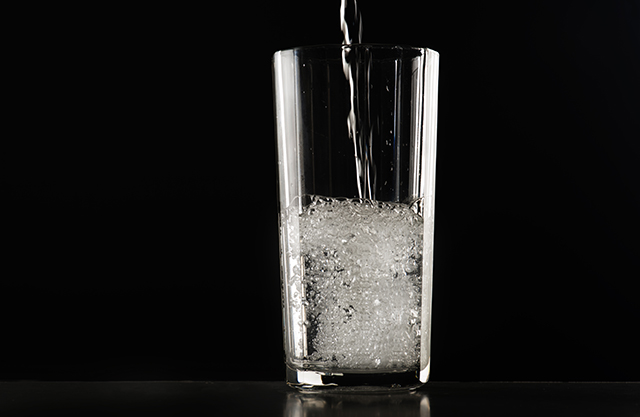Advocating for fluoridated water

Without even thinking about it, millions of Americans improve their oral health simply by turning on the tap. That is due to the benefits of fluoride, which occurs naturally in water and is known to harden tooth enamel and help prevent cavities.
For decades, cities have harnessed this mineral’s potential by adjusting the levels found in drinking water. The result: community water fluoridation systems for more than 210 million Americans, including 20 million Texans.
The scant amounts of fluoride in a community water supply — Dallas’ averages 0.4 parts per million — can’t be smelled or seen, but the impact is far reaching, whether grabbing a drink from the sink at home or even a sip from the water fountain at work.
“Fluoride has tremendous benefits on teeth,” says Lawrence Wolinsky, Ph.D., D.M.D., dean of Texas A&M University Baylor College of Dentistry, “not only on developing teeth, but teeth once they’re formed. It strengthens enamel and makes it much easier to fight off tooth decay.”
According to the American Dental Association, community water fluoridation is known to reduce dental decay by at least 25 percent. And it’s touted by the Centers for Disease Control and Prevention as one of the top 10 greatest public health achievements of the 20th century.
While more than 400 U.S. communities have opted to adopt or retain their water fluoridation systems since 2000, these programs are by no means permanent. In the light of intense pressure and campaigning from anti-fluoridation groups, some large cities — like Portland, Ore., and Tucson, Ariz. — have chosen to do away with their water fluoridation programs.
When the issue surfaced this spring in Dallas, the ninth largest city in the U.S., Texas A&M Baylor College of Dentistry joined the dialogue.
Dr. Danette McNew ’88, a part-time faculty member and president of Dallas County Dental Society, says one recurring question has come to light: Why do cavities occur despite fluoridation?
“We cannot push people to drink tap water. We can only encourage them to do so,” says McNew, listing faucet water filtration systems, bottled water, and acidic sports and energy drinks as common culprits that keep residents from maximizing fluoride’s remineralizing effects. “We want to protect as many people as we can,” she adds. “When it comes to serving the public, we think fluoridation is the best method to do so.”
Plus, it’s inexpensive.
“It’s less than a dollar per person per year,” says Wolinsky of Dallas’ $600,000-plus annual water fluoridation budget. “If you look at a typical silver filing, it could cost anywhere from $85 to $150.”
Texas A&M University Baylor College of Dentistry experts speak out on water fluoridation
- CBS Channel 11
- Channel 23 Univision Dallas
- Dallas Morning News editorial
- Dallas Morning News letter to the editor